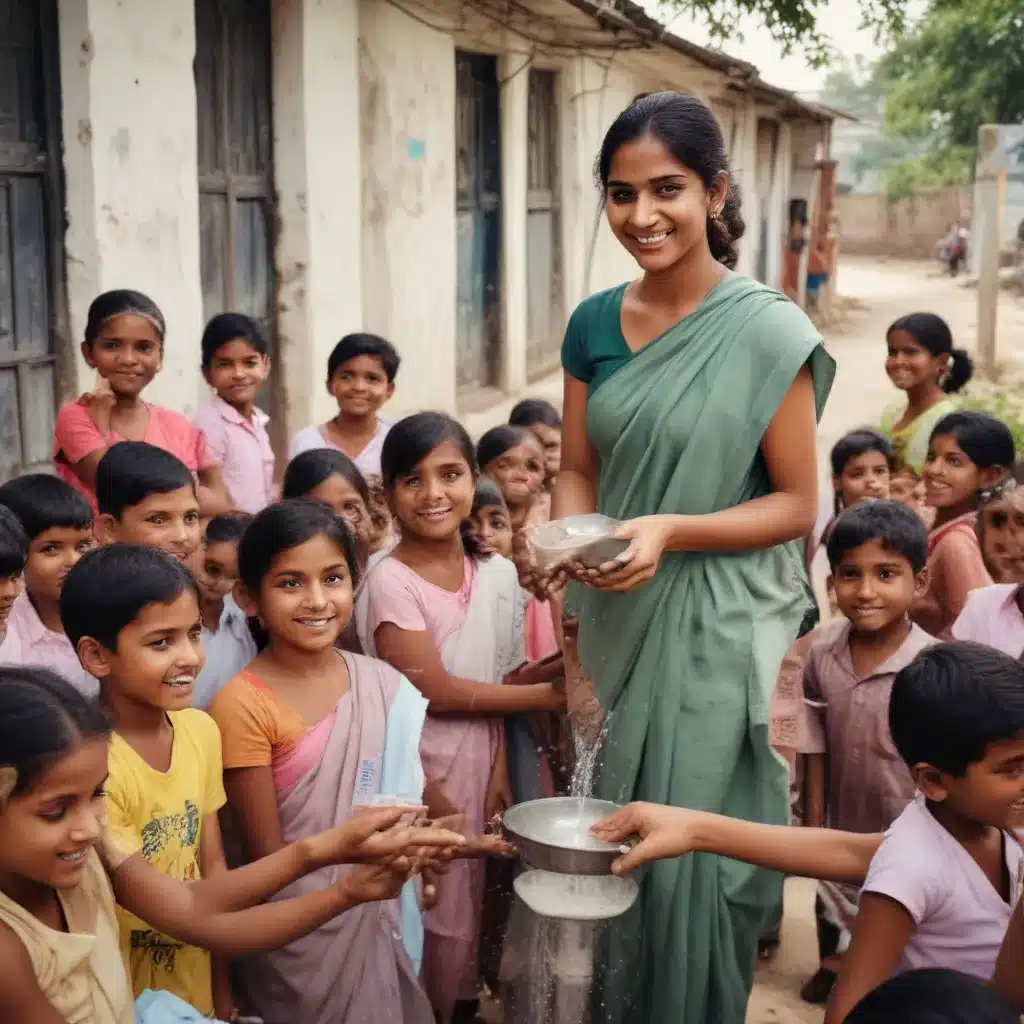
Transforming Communities Through Sustainable Water and Sanitation
Access to clean water and proper sanitation is a fundamental human right, yet millions around the world continue to struggle with these basic necessities. In Hyderabad, India, the story is no different. However, a dedicated community of advocates, educators, and local leaders are working tirelessly to change that narrative and empower residents with the knowledge and resources to improve hygiene and sanitation practices.
Uncovering the Water Crisis in Hyderabad
Hyderabad, the vibrant capital of Telangana, is no stranger to the water crisis plaguing many parts of India. According to a report by water.org, 1 in 4 people globally lack access to safe water, and 2 in 5 do not have access to a safe toilet. In Hyderabad, these numbers are even more staggering, with many neighborhoods, particularly in the urban slums, facing severe water shortages and inadequate sanitation facilities.
The implications of this crisis are far-reaching. Women and children often bear the brunt, spending hours each day collecting water, time that could be spent on education, work, or caring for their families. Furthermore, the lack of access to clean water and proper sanitation contributes to the spread of waterborne illnesses, leading to poor health outcomes and significant economic losses.
Empowering Communities Through Hygiene Education
Recognizing the urgent need for action, local organizations and community groups in Hyderabad have stepped up to spearhead a comprehensive hygiene education initiative. By partnering with the Joint Action for Water organization, these dedicated individuals are making strides in transforming neighborhoods and empowering residents to take control of their water and sanitation challenges.
The cornerstone of this initiative is a multi-faceted approach that combines classroom-style training, hands-on demonstrations, and community-based advocacy. Through interactive sessions, residents learn about the importance of personal hygiene, proper handwashing techniques, and the management of household waste. Additionally, they receive guidance on maintaining and using water filtration systems, as well as strategies for lobbying local authorities for improved infrastructure.
“The key to sustainable change lies in empowering the community,” explains Ramesh Allam, a community organizer with the Share Foundation. “By equipping residents with the knowledge and skills to advocate for their own needs, we’re seeing a shift in mindset and a growing sense of ownership over water and sanitation issues.”
Innovative Solutions for Sanitation Challenges
Alongside the hygiene education program, the Joint Action for Water initiative has also introduced innovative solutions to address the sanitation challenges faced by Hyderabad’s neighborhoods. One such initiative is the deployment of eco-friendly, low-cost toilet facilities in areas with limited access to traditional sewage systems.
These sustainable sanitation units, designed by local engineers and technicians, utilize composting methods to convert human waste into nutrient-rich fertilizer. Not only do they provide a hygienic alternative to open defecation, but they also contribute to the circular economy by repurposing waste and reducing the strain on the city’s overburdened waste management system.
“By thinking creatively and involving the community in the development process, we’ve been able to implement sanitation solutions that are both environmentally friendly and culturally appropriate,” says Jennifer Towbin, the program director for the Health Equity Track at RUSH University’s Global Health Branch.
Fostering Community Engagement and Advocacy
The success of the hygiene education program lies in its ability to foster a sense of community ownership and advocacy. Through regular town hall meetings, neighborhood outreach events, and collaborative problem-solving sessions, residents are empowered to voice their concerns, share their experiences, and work collectively toward lasting solutions.
“We’ve seen a remarkable transformation in the way people view and engage with water and sanitation issues,” shares Octavio Vega, the program director for the Health Equity Track at RUSH University’s Local Health Branch. “What was once seen as a daunting, hopeless problem is now viewed as a challenge that can be tackled through unified community action.”
This community-driven approach has also led to the establishment of local water committees, where residents actively monitor water quality, report infrastructure issues, and collaborate with local authorities to address their neighborhood’s needs. By taking an active role in the decision-making process, these communities are ensuring that the solutions implemented are tailored to their unique circumstances and needs.
Measuring the Impact and Scaling Up
The impact of the hygiene education initiative in Hyderabad has been nothing short of remarkable. Preliminary data collected by the Joint Action for Water team indicates a significant reduction in waterborne illnesses, increased school attendance, and improved household sanitation practices among participating neighborhoods.
“The metrics speak for themselves,” says David Ansell, the Senior Vice President for Community Health Equity and Co-Director of the RUSH BMO Harris Institute for Health Equity. “But the real success lies in the transformative change we’ve witnessed in the lives of the people we’ve reached – the empowerment, the pride, and the sense of control over their own well-being.”
Building on this momentum, the Joint Action for Water team is now working to replicate the success of the Hyderabad initiative in other cities across India, leveraging the lessons learned and the strong community networks established. By scaling up the program, they aim to ensure that every neighborhood, regardless of socioeconomic status, has access to the education and resources needed to achieve sustainable water and sanitation solutions.
Conclusion: A Blueprint for Lasting Change
The hygiene education initiative in Hyderabad stands as a testament to the power of community engagement and the transformative potential of empowering people with knowledge and resources. By tackling the water and sanitation crisis from a grassroots level, the Joint Action for Water team has not only improved the health and well-being of Hyderabad’s residents but has also ignited a spirit of advocacy and self-determination that will continue to drive progress for years to come.
As the world grapples with the global water crisis, the Hyderabad model offers a blueprint for sustainable change – one that puts the community at the center of the solution and harnesses the collective power of informed, engaged citizens to create a better future for all.

